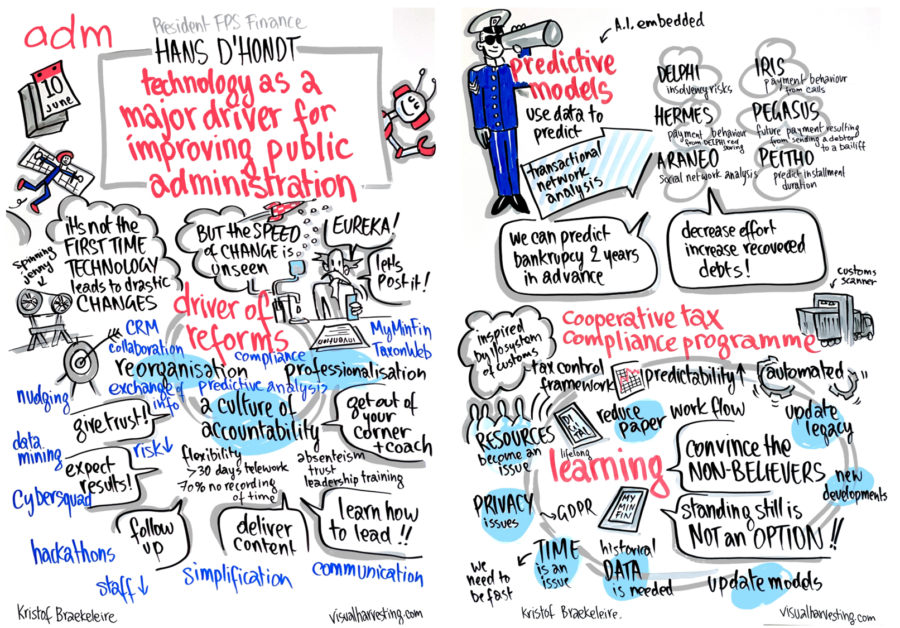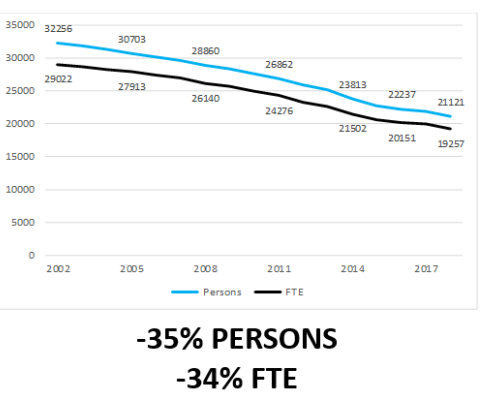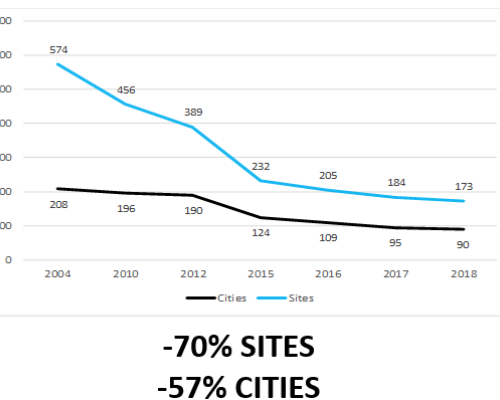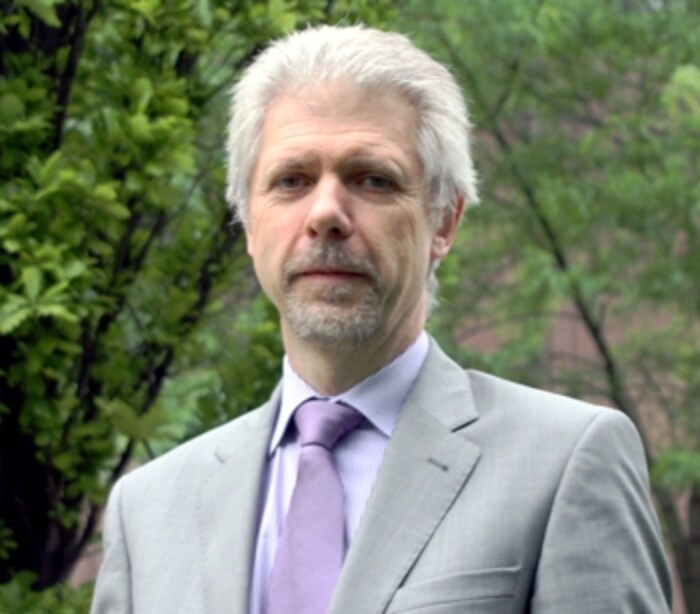Introducing the FPS Finance, the figures regarding the evolution between 2002 and 2019 at the start of his presentation said it all:
Inspirational talks thought leaders and other remarkable professionals, topic based round tables, tips & tricks sessions etc.
During “Networking” events, one of the important parts is getting connected and sharing your ideas and visions with other professionals.
Activities exclusively for our ADM Ambassador community.
Activities for members of the Board or ADM Y-board.
This event is open for everyone to join.
This is a members-only event.
You can only participate when you received a personal invitation.
Live event
10 June, 2020
16:15 - 17:00 h
- Presentation: NL
- Slides: EN
- Q&A: NL EN FR
Hans D'Hondt : Technology as a major driver for improving public administration.

FPS Finance : "do more with less"


The credo for this transformation was ‘do more with less’.
Notwithstanding the fact that it is not the first time technology leads to drastic changes of our economy, the speed of these changes has never been that high before. In other words: it is as well an opportunity as a challenge for the FPS-Finances.
Their main change has been translated in a reorganisation that focused on target groups (large companies, small companies, citizens,…) to structure the organisation. The processes have been adapted, management instruments introduced and performance management enhanced.
The management implemented a culture of accountability meaning an administrative follow-up has been replaced by a flexible result-oriented organisation.
Between 2011 and 2018 the number of employees decreased from 26.682 to 21.121. Telecommuting started at ‘O’ (zero) in 2011 to attain 13.984 in 2018. The definition of ‘flexibility’ comprised:
- More than 30 days telework
- 70% people didn’t need to record the working time any longer
Changing the culture also means build trust and provide leadership training in order to manage the absenteeism successfully.
Technology as gamechanger
This professionalization generated an enormous organizational impact:

As a result new ‘finance’ applications became available for the Belgian citizen: who among us has never used MyMinFin or received one of the 3.920.000 ‘simplified tax declarations’ with all relevant info already pre-printed…
Though the most impactful applications about technology as a game changer are:
- Predictive analysis
- Exchange of information
- Compliance control and payments risks
- Cooperative compliance
They are proof of the successful implementation of technology to replace 30% of staff members.
FPS-Finances heavily invests in predictive models by means of 6 models named after Greek goddesses to tackle the whole process of outstanding payments. This starts from the categorization of the risk (Delphi) including the prediction of all kinds of payment behaviours (Hermes, Pegasus, Araneo and Peitho).
The figures speak for themselves, example: the Delphi application predicts that more than 60% with the highest risk scores can
eventually go bankrupt after 2 years…
Overall objective is to intervene in the right way, with the right means at the right moment in order to avoid too high costs. Predictive models increase the efficiency by better determining the priorities. Here again: decrease in staff but increased recovered debts!
Covid-19
Since the FPS-Finances has invested in homeworking applications and devices since 2011, 70% of staff is doing telework using 15.000 VPN lines. Only control activities (like company visits) were impacted due to the lockdown. On the contrary performance of activities not requiring external contacts showed no loss in performance.
Just like any other company
It is a pleasant discovery to learn that the Belgian FPS-Finances is organized like every organisation and company in Belgium: focus on efficiency and control.
They had no loss of performance during Corona. So, what are the risks and barriers to adopt technology even more quickly:
- Transformation of administration and convincing non-believers
- Privacy issues (GDPR)
- Resources: data analyst talents are scarce
- Time needed for development and R&D
- Financial needs are high
Their road ahead is not about digitalising the back-office but about interfacing with a digital society…
Thank you Hans, this presentation proves the Belgian FPS Finances-department is a place where we find the same challenges as we face in the companies and organisations we work in. The overall objectives are:
- Adopting new technologies
- Striving for efficiency
- Doing the utmost to make ‘digital’ mandatory while fading our paper and pdf
- Increase user-friendliness
On the "Related" tab of this page you can find
- the presentation by Hans D'Hondt
- the recording of the whole online session
- the visual report of the session by Kristof Braekeleire
About Hans D'Hondt

Hans D'Hondt, the chairman of the Belgian Federal Public Service Finance, was elected as government manager of the year 2018 by the Flemish Association for Administration and Policy (VVBB).
After a career at various cabinets, Hans D'Hondt has been chairman since 2010 of the largest administration in Belgium. He has over the past years, together with his staff, thoroughly reformed the FPS Finance. The change towards an organisation that focuses on target groups (citizens, companies), the introduction of management tools to monitor performance and the great attention to ethical awareness in an organisation that needs reliability and a just, but correct treatment of her critical customers are some illustrations of this reform.
The FPS Finance is one of the most complex public organisations due to its long history, its size, its high visibility and the sensitivity of its services. The successful introduction of new work processes and methods - by definition provoking resistance - puts the merit of Hans D'Hondt in the spotlight. The prize as Government Manager of the Year also underlines that important government organisations can also go through a change process and be innovative.
About this session
For obvious reasons the yearly reception scheduled on 19 March couldn’t be organized as planned. This implies our keynote speakers’ contribution was at risk...
Therefore the management decided to continue the weekly online events in June by giving the floor before summer holidays to Hans D’Hondt on 10 June and Nancy Vermeulen on 17 June.
|
|
20200610 Hans Dhont |
2.979 MB |
|
|
Visualharvesting |
2.144 MB |
ADM members have access to other (member-restricted) documents after signing in into the website